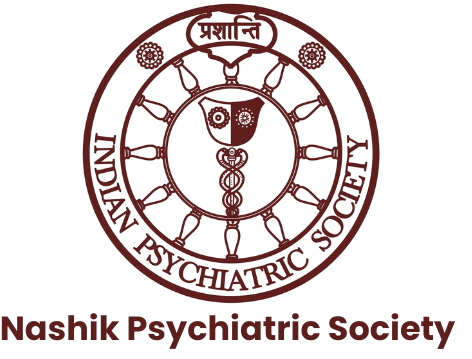Dementia
Dementia is defined as a syndrome characterized by a significant and progressive decline in global cognitive functions, such as
- memory,
- thinking,
- Recalling ,
- Executive function
- reasoning,
to a degree that it interferes with a person’s ability to perform daily activities and occupational or social functioning.
*Its not a specific disease but a collection/ cluster of above symptoms.
Prevalence : 7.4% in those aged 60+
(Indian population)
*Contributing Factors to Dementia Risk
1) Age: The risk of developing dementia increases significantly with age.
2)Gender: Women are disproportionately affected by dementia, experiencing higher rates of disability and death from the condition.
3) Lifestyle: Lifestyle choices and underlying health conditions such as Hypertension, Diabetes, Obesity, and physical inactivity can increase
the risk of dementia.
4) Education: Lower levels of education are associated with a higher risk of dementia.
5) Addictions : Smoking, Alcohol .
6) Social Isolation.
Types of Dementia :
Dementia is caused by number of diseases that injured brain nerve cells & damage brain gradually .
Depending upon the etiopathology types of Dementia are :
1) Alzheimer’s Dementia – most common type.
2) Vascular Dementia
3) Dementia with Lewy bodies
4) Frontotemporal Dementia.
* Signs and Symptoms :
Changes in mood and behaviour sometimes happen even before memory problems occur. Symptoms get worse over time. Eventually, most people with dementia will need others to help with daily activities.
A) Early signs and symptoms are:
1) forgetting things or recent events
2) losing or misplacing things
3) getting lost when walking or driving
being confused, even in familiar places
4) losing track of time
5) difficulties solving problems or making decisions
6) problems following conversations or trouble finding words
7) difficulties performing familiar tasks
8) misjudging distances to objects visually.
B) Common changes in mood and behaviour include: ( Personality changes)
1) feeling anxious, sad, or angry about memory loss
2) personality changes
3) inappropriate behaviour
4) withdrawal from work or social activities
5) being less interested in other people’s emotions.
6) Iritability.
People with dementia may not be able to recognize family members or friends, develop difficulties moving around, lose control over their bladder and bowls, have trouble eating and drinking and experience behaviour changes such as aggression that are distressing to the person with dementia as well as those around them.
Treatment:
There is no cure for Dementia..
Tips for caregivers (besides treatment) to handle Patients & their difficulties regarding memory problems..
1) keep their basic necessities in front of patient like -for ex.their stick, their specs, their clothes, etc
-So that they dont have to search /juggle for their routine objects..
2) Try to form their new memories by conjugating it with emotions.
Ex telling patient today is 21 sept when we celebrate their grand daughters bday every year and telling them how amazing last years party was..
3) Try to keep their daily activities same schedule or timetable
Giving them breakfast , lunch and dinner at same time daily and pointing towards
clock and telling them the time when u serve them the meal.
For Ex. Its 1 pm its your lunch time.
Its 9 pm its your dinner time.
4) Giving medications of Patient strictly by “Caregiver” As patient can by mistake can forget to take medicines Or may Overdose Medicines as patient might forget they have already taken their medicines..
Same things might happen with their eating. Some patients might ask for meals even aftr eating coz they might forget they had meals.. (Overeating)
5) Such Patients Must be Handled with Much Patience, Empathy and calmness and one should not ask them Questions which might increase their Iritability or make them feel embarassed about their Memory Pbms…
6) seek psychiatrists help for Early diagnosis and treatment.
–Dr.Sneha Mehta.

